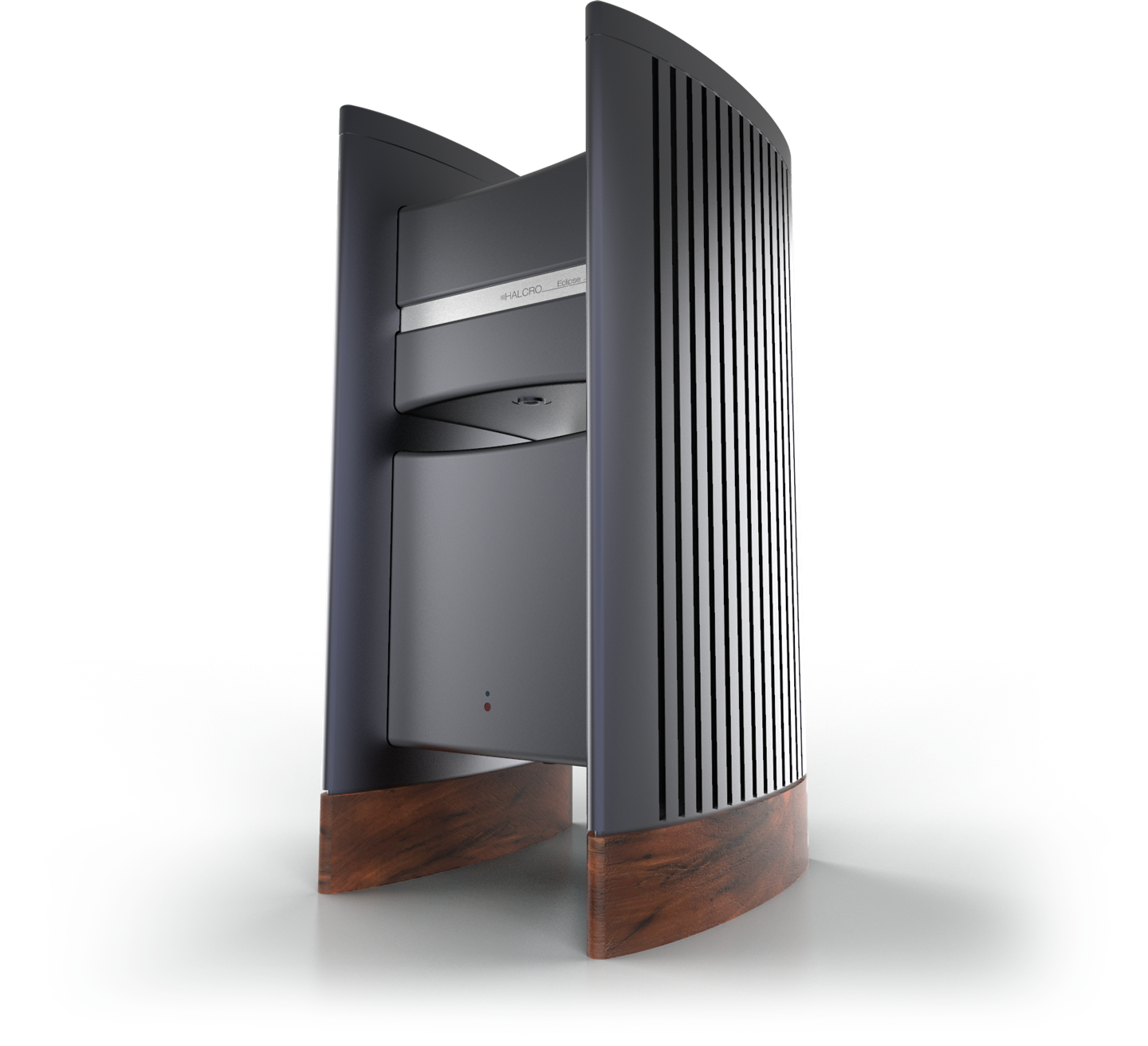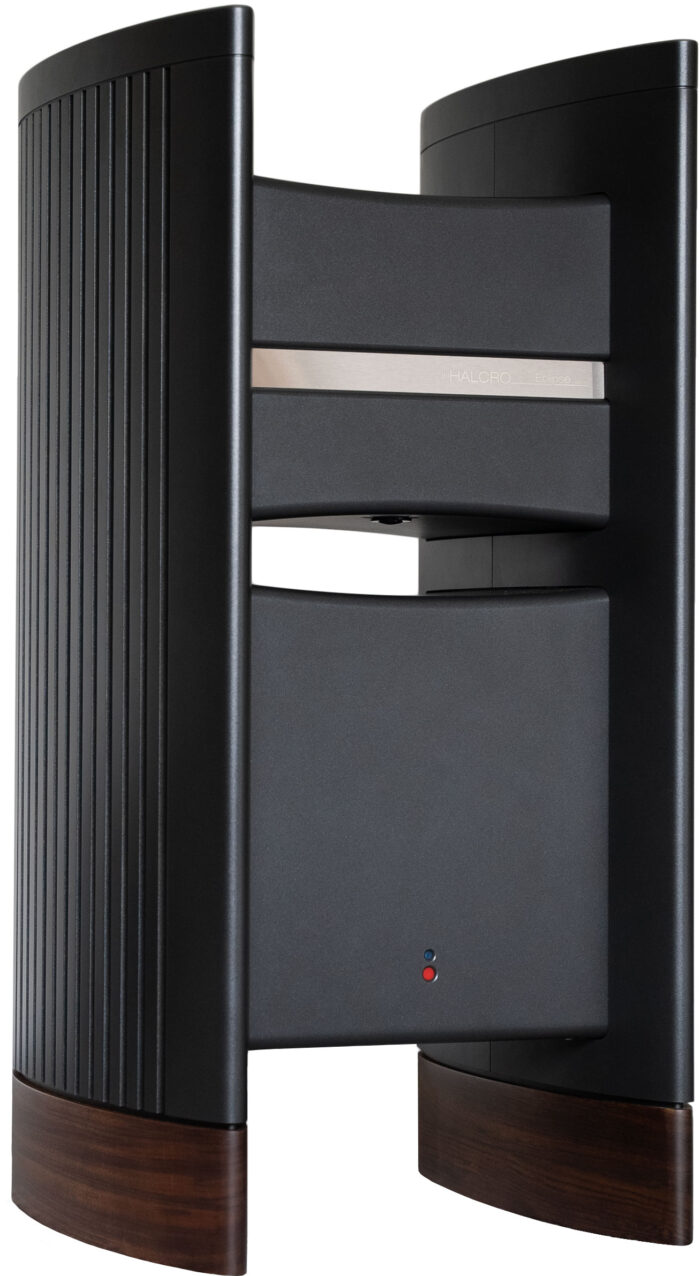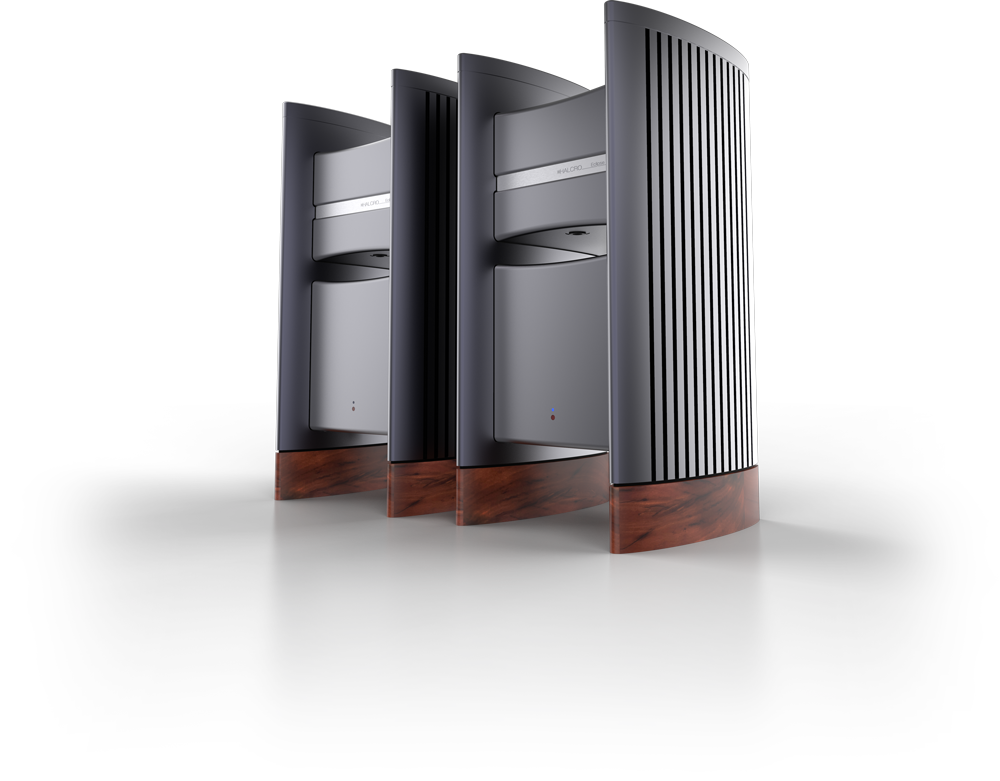PRODUCTS
 Back
Back
Eclipse mono
power amplifier
The all new Halcro Eclipse amplifiers herald a new era in the Halcro story. The original Halcro dm amplifier hit the market to disbelief – orders of magnitude lower distortion than anyone believed possible. The Eclipse amplifiers take musical expression to a new height.
The new Halcro team have spent the past couple of years exploring every aspect of the unique platform for possible improvements. We present – the new reference in amplification.
Available in both stereo and mono versions, the Eclipse series is unparalleled in its ability to render details formerly lost in the distortion.
The Eclipse enjoys a completely redesigned input stage, further reducing non-linear effects and distortion. There are multiple independently tracking power supplies, superior internal shielding and higher output power. Finally the Eclipse amplifier offers a new, modern, ‘lighter’ take on the distinctive and award winning Halcro aesthetic. Even this contributes to better performance with the new, machined-from-solid casework reducing microphonics.

Halcro amplifiers offer an unmatched insight into the music. They position everything precisely in the soundstage due to their unique ability to avoid adding ‘ghost’ notes that are thrown into the mix by the non-linear distortion of a conventional amplifier. Lack of distortion aside, one of the many things that make Halcro amplifiers so good is the way they maintain the phase coherence of the signal source. Phase coherence is a measure of the degree to which a system maintains the relative timing of various notes or tones within complex music.
When it comes to driving your loudspeakers musically, the Eclipse has no peer. The Eclipse mono produces 300 watts/per channel into an eight-ohm loudspeaker, 550 watts/channel into four-ohms with a peak power of 2.1kW for the most dynamic of transients.
Beyond all the technology, there is only one thing that matters: the ability to convey the emotion of music!

Power
- Power output into 4 ohms resistive > 500 W
- Power output into 8 ohms resistive > 280 W
(Measured at 1kHz)
Distortion (Footnote 1)
- At full power output, all harmonic distortion orders:
- THD <-120 dB (<300 parts per billion) up to 20 kHz (100 kHz B.W.) at 450 W into 4 ohms.
- THD @ 1 kHz <-134 dB (<200 parts per billion).
- For sum of 19 and 20 kHz tones, each delivering 112.5 W into 4 ohms = peak power 450W, resulting intermodulation products each <-120 dB relative to output.
- SMPTE-IM intermodulation products each
<-120 dB relative to output.
Inputs
There are four input modes:
- an unbalanced voltage mode input with an impedance of 22 kOhms
- a balanced voltage mode input with an impedance of 22 kOhms + 22 kOhms
- a current-mode input with a 60 Ohm input impedance (infinite impedance current source)
- a minimal path voltage mode with an input impedance of 660 Ohms
The voltage gain of the balanced and unbalanced inputs is 30 V/V and for the minimal path mode is 15 V/V. The gain of the current mode is 9 V/mA
Noise
The equivalent input noise at the input is 5 nV/sqrt(Hz) for the voltage modes and 6 pA/sqrt(Hz) for the current mode.
Frequency Response
- 3Hz – 215kHz: -3db
- 7Hz – 90kHz: -1dB
(Measured at 1W output)
Slew rate limit
Maximum slew rate for both small signal and maximum output voltage is 100V/μs (which is equivalent to a maximum output voltage at approximately 250 kHz).
Power supply
- active power factor correction minimizes mains current harmonic distortion
- operates at all voltages from 85 to 270 V r.m.s. 45-65 Hz, without any internal or external switches
- less than 100 parts per million mains hum and ripple on the amplifier power rails
- conforms with PFC and EU emission standards set for 2002
Overload (Footnote 2)
- Recovery from hard overload at 20 kHz into 4 ohms is 1 ms.
Protection
The amplifier protection:
- is short-circuit proof
- has over current limiting
- has gradual power limiting if amplifier becomes too hot
- will cut out if a continuous D.C. offset appears on output
- will cut out if output current exceeds 12A average continuously over a period of a few minutes
- is protected against most input overloads
The power supply protection:
- will cut out if most common faults are detected in the power supply (such as over-voltage, master clock at incorrect frequency, excessive temperatures)
- is protected against most mains transients
Components (Footnote 3)
For reliability, all semiconductors are at least industrial grade in both the power supply and amplifier. All electrolytics are rated to 105°C in both the amplifier and power supply.
- only highly linear resistors and MKP10/ FKP1 capacitors are employed in the critical audio path
- six-layer PCBs are used in the power amplifier to minimize stray magnetic fields and to accurately define voltages
- four-layer PCBs are used in the power supply to minimize E.M.I. and voltage transients, which improves reliability and power efficiency
Compartments
There are four heavily shielded compartments:
- a power supply unit
- an input amplifier section
- a power amplifier compartment
- an output filter compartment
Filtering
Series and common mode EMI filtering is present:
- on the mains input
- between the amplifier and power supply
High frequency filtering is present at the inputs and output.
Dimensions (per monoblock)
- Weight, 135 lb or 62 kg
- Height, 31 in or 79 cm
- Width, 16 in or 40 cm
- Depth, 16 in or 40 cm
- Shipping weight, (one pair including pallet)
- 400 lb or 180 kg
Footnotes
- THD specifications of our typical best competitors are, 200,000 parts per billion.
- Indicates no excessive negative feedback.
- “Industrial” grade is a higher grade than the “commercial” grade used by most manufacturers.

